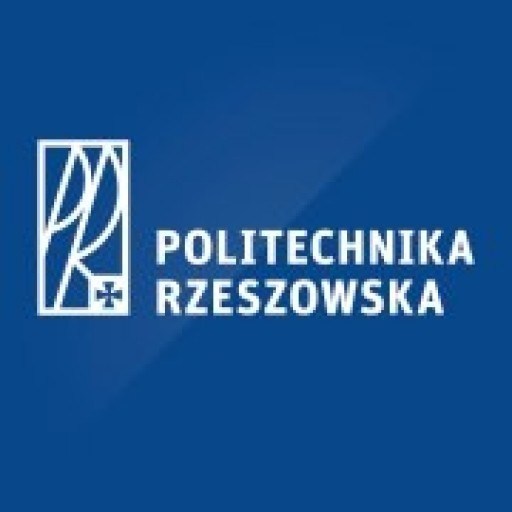Photos of university / #vubrussel
The Bachelor of Engineering (BEng) in Civil Engineering at the Free University of Brussels offers a comprehensive undergraduate education designed to prepare students for a successful career in the field of civil engineering. This programme combines rigorous scientific and technical coursework with practical training, enabling students to develop a solid foundation in the core principles of civil engineering, including structural design, geotechnics, hydraulics, transportation systems, and construction management. Throughout the programme, students are encouraged to engage in project work, laboratory exercises, and site visits to gain hands-on experience and understand real-world applications of their theoretical knowledge. The curriculum emphasizes sustainable development, environmental considerations, and innovative engineering solutions to address contemporary challenges faced by modern society. Students also have opportunities to participate in internships and collaborative projects with industry partners, facilitating the transition from academic learning to professional practice. The programme is taught by a team of experienced faculty members who are actively involved in research and development within the civil engineering sector, ensuring that the education provided is aligned with current industry standards and technological advancements. Graduates of the BEng in Civil Engineering will acquire critical thinking, problem-solving, and project management skills that are essential for designing, constructing, and maintaining infrastructure that contributes to societal well-being and economic development. Upon completion, students will be prepared to pursue further studies such as a Master’s degree or enter the workforce as qualified civil engineering professionals equipped to work on infrastructural projects, urban development, environmental protection, and disaster risk reduction. The programme also aims to promote lifelong learning and ethical professional conduct, emphasizing the importance of sustainable practices and social responsibility in engineering solutions.
The Civil Engineering program at the Free University of Brussels is a comprehensive and rigorous course designed to prepare students for a successful career in the construction and infrastructure sectors. This program offers a multidisciplinary curriculum that combines theoretical knowledge with practical skills, ensuring graduates are well-equipped to face the challenges of modern engineering projects. Throughout the program, students delve into core areas such as structural analysis and design, geotechnical engineering, fluid mechanics, transportation engineering, and construction management. The curriculum emphasizes sustainable development and innovative solutions to address contemporary issues related to urbanization, environmental impact, and resource efficiency.
Students engage in a variety of coursework that includes mathematics, physics, materials science, and computer-aided design, fostering a strong foundation in engineering principles. Practical laboratory sessions, workshops, and field trips complement classroom learning, providing real-world experience and enhancing problem-solving capabilities. The program also promotes collaboration through team projects, preparing students for the multidisciplinary nature of civil engineering work.
Internships and industry placements are integrated into the curriculum to give students exposure to professional environments, fostering networks and practical understanding of project workflows. The university’s state-of-the-art laboratories and research centers support advanced study and innovation in areas like sustainable materials, earthquake-resistant structures, and urban planning.
Graduates of the Civil Engineering program are equipped to pursue careers in construction companies, consulting firms, public agencies, and research institutions. They are trained to design resilient infrastructure, analyze environmental impact, manage construction projects efficiently, and advance sustainable development practices. The program also provides a solid basis for further academic research or specialization through postgraduate studies. Overall, the Civil Engineering program at the Free University of Brussels is committed to cultivating skilled professionals dedicated to building safer, smarter, and more sustainable environments for future generations.
The Bachelor's degree in Civil Engineering at the Free University of Brussels requires students to complete a comprehensive curriculum designed to provide foundational knowledge and practical skills in engineering principles, construction practices, and infrastructure development. The program typically begins with core courses in mathematics, physics, and computer science to establish essential analytical and technical competencies. Students then progress to specialized courses such as structural analysis and design, geotechnical engineering, transportation engineering, water resources management, and construction management. The curriculum emphasizes both theoretical understanding and practical application, including laboratory work, design studios, and project-based learning.
Throughout the program, students are expected to develop competencies in engineering software, modeling techniques, and quantitative analysis. Interdisciplinary integration is encouraged, with courses often covering environmental considerations, sustainability, and innovative construction methods. The program also includes modules on professional ethics, safety standards, and regulatory frameworks governing civil engineering projects. To foster problem-solving abilities and teamwork, students participate in case studies, group projects, and internships in collaboration with industry partners.
Assessment methods involve written examinations, project presentations, and practical evaluations to ensure mastery of technical skills. The program culminates in a final year project where students demonstrate their ability to design, analyze, and manage complex civil engineering initiatives. Admission requirements typically include a secondary school diploma with strong emphasis on mathematics and sciences. Prospective students are also evaluated based on their aptitude for engineering disciplines and motivation for the field. Upon successful completion, graduates receive their Bachelor's degree, qualifying them to pursue advanced studies or entry-level positions in the civil engineering industry.
The financing of the Civil Engineering program at the Free University of Brussels primarily relies on a combination of governmental funding, tuition fees, research grants, and additional financial support schemes. As a higher education institution in Belgium, the university benefits from federal and regional educational subsidies aimed at promoting technical and engineering education. These subsidies are allocated based on the number of enrolled students, research output, and strategic priorities of the university, ensuring adequate funding for laboratory facilities, teaching staff, and research projects within the Civil Engineering department.
Tuition fees constitute a significant part of the program’s financing structure. For international students, fees are set according to regulations established by the Belgian government, with specific rates applicable to students from the European Union and non-EU countries. The university offers various scholarship programs and financial aid options to support students financially. These include merit-based scholarships, need-based grants, and mobility grants designed to facilitate student exchanges and internships abroad.
Research funding is also an essential aspect of the program’s finance. Civil Engineering faculty members often participate in national and European research projects, which provide grants to support innovative studies and technological advancements within the field. These projects not only advance the scientific knowledge but also contribute to the financial stability of the department by covering associated costs.
Additionally, the university collaborates with industry partners and public institutions, which often fund specific research initiatives or provide sponsorship for student projects and internships. These collaborations foster practical experience for students and generate supplementary revenue for the program.
Internship placements and cooperative education programs also play a role in the program's financing, offering students opportunities to gain practical experience while partially offsetting education costs. Finally, the university encourages alumni donations and partnerships with industrial and governmental bodies to support infrastructure, scholarships, and development projects within the Civil Engineering program, ensuring its sustainability and capacity for high-quality education and research. Overall, the financing of the Civil Engineering program at the Free University of Brussels is a multifaceted system leveraging public funds, private investments, research grants, and student contributions to maintain and enhance its academic offerings.
The Civil Engineering program at the Free University of Brussels is designed to provide students with a comprehensive education in the fundamental principles and advanced techniques needed to plan, design, construct, and maintain infrastructure projects. The program aims to develop students’ technical skills, problem-solving abilities, and understanding of sustainable development within the context of civil engineering. Students gain knowledge across various specializations, including structural engineering, transportation, geotechnical engineering, water resources, environmental engineering, and construction management.
The curriculum combines theoretical coursework with practical experience through laboratory work, workshops, and internships. Emphasis is placed on innovative solutions, safety standards, environmental impact assessment, and the use of advanced software tools for engineering design and analysis. The program also fosters teamwork, communication skills, and project management capabilities, preparing graduates to work effectively in multidisciplinary teams and diverse professional environments.
Graduates of the Civil Engineering program are equipped to pursue careers in construction companies, engineering consultancies, public works departments, and research institutions. They can engage in designing and supervising large infrastructure projects such as bridges, roads, railways, water supply systems, and urban development projects. The program aligns with European professional standards, encouraging lifelong learning and continuous professional development to keep pace with technological advancements and evolving industry practices.
The faculty members involved in the program are experts in their respective fields, contributing to research and innovation that enhance curriculum content and provide students with exposure to cutting-edge developments. Students are encouraged to participate in international exchange programs, internships abroad, and industry conferences, broadening their professional network and global outlook. Upon completion of the program, graduates receive an official degree in Civil Engineering, which is recognized across Europe and supports their entry into the labor market or further academic pursuits such as specialization or postgraduate studies. The university maintains strong links with industry partners to facilitate employment opportunities and ensure the program remains aligned with current and future industry needs.










